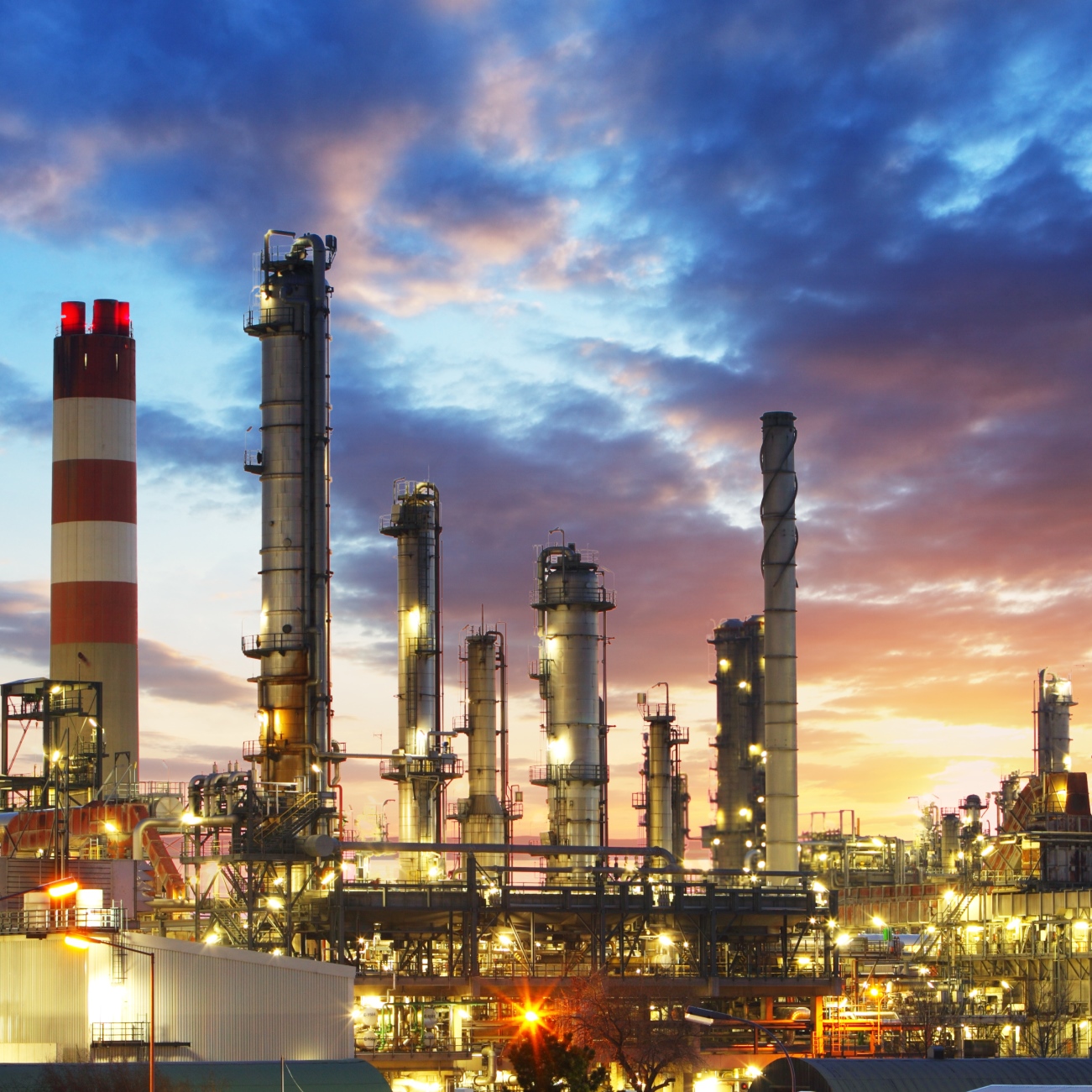
Of the four largest U.S. oil refiners, two boosted net income in each quarter of 2015. Two of the four report fourth-quarter results later this month, and the other two report in the first two weeks of next month.
Thursday’s news that Warren Buffett’s Berkshire Hathaway Inc. (NYSE: BRK-A) had raised its stake in the country’s largest refiner, Phillips 66 (NYSE: PSX), to a little more than 12%. Buffett is well-known for playing the long game, but in the near term analysts are not expecting refiners to benefit much from falling crude prices.
Only one refiner, Tesoro Corp. (NYSE: TSO), is expected to post higher earnings per share in the fourth-quarter of 2015 than it did in the 2014 fourth quarter. What’s odd about that is that at the end of December 2014, the spot price of West Texas Intermediate (WTI) at the Cushing, Okla., hub was $52.72 a barrel. At the end of 2015, that had dropped by about $15 a barrel to $37.13. Low crude oil prices typically mean that refiner margins and profits rise.
At the same time, the average retail price for a gallon of regular gasoline was $2.299 at the end of 2014, and continued to fall in the first seven weeks of 2015, reaching a low of $2.044 at the end of January, then rising to $2.448 at the end of the first quarter. In that quarter, refiners’ quarterly net income slipped to its lowest level of the past four quarters.
Here’s the chart for Phillips 66, Valero Corp. (NYSE: VLO), Marathon Petroleum Corp. (NYSE: MPC) and Tesoro:
| Q4 2014 | Q1 2015 | Q2 2015 | Q3 2015 | |
| Phillips 66 | $1.15 billion | $987 million | $1.01 billion | $1.58 billion |
| Valero | $1.12 billion | $964 million | $1.35 billion | $1.38 billion |
| Marathon | $798 million | $891 million | $826 million | $948 million |
| Tesoro | $145 million | $145 million | $582 million | $759 million |
Refiner profits rose throughout 2015 as crude prices and retail prices fell. Dog bites man.
Now look at what analysts are expecting for the fourth quarter of 2015:
- Phillips 66: EPS of $1.40 compared with $1.63 in the fourth quarter of 2014
- Valero: EPS of $1.38 compared with $1.83
- Marathon: EPS of $0.79 compared with $1.44
- Tesoro: EPS of $2.22 compared with $1.46
Refining margins have improved in the past two quarters, but even with falling pump prices, demand from U.S. drivers is at a 10-year low. Adjusted for population differences, U.S. motorists are traveling about 6% fewer miles than they did in the peak driving year of 2005. Combine that with the fact that cars and light trucks that average about five miles more per gallon of gas than they did 10 years ago, and we might conclude that demand has not just slowed down, but has in fact been permanently destroyed.
In each of the past two weeks, U.S. gasoline inventories have soared by a total of nearly 20 million barrels, even as refinery runs have slowed to around 91% of capacity from a high last month of around 95%. As gasoline inventories rise, demand on refiners falls. The corollary to that is that demand falls at the retail pump, in essence forcing refiners to lower prices and thereby reduce their profits. Demand for crude falls too, putting more pressure on crude prices as well.
Refiners enter their turnaround and maintenance season in February, and pump prices typically rise as refinery throughput declines. That calculus may be different this year, though, if gasoline inventories continue rising.
Are You Still Paying With a Debit Card?
The average American spends $17,274 on debit cards a year, and it’s a HUGE mistake. First, debit cards don’t have the same fraud protections as credit cards. Once your money is gone, it’s gone. But more importantly you can actually get something back from this spending every time you swipe.
Issuers are handing out wild bonuses right now. With some you can earn up to 5% back on every purchase. That’s like getting a 5% discount on everything you buy!
Our top pick is kind of hard to imagine. Not only does it pay up to 5% back, it also includes a $200 cash back reward in the first six months, a 0% intro APR, and…. $0 annual fee. It’s quite literally free money for any one that uses a card regularly. Click here to learn more!
Flywheel Publishing has partnered with CardRatings to provide coverage of credit card products. Flywheel Publishing and CardRatings may receive a commission from card issuers.
Thank you for reading! Have some feedback for us?
Contact the 24/7 Wall St. editorial team.
 24/7 Wall St.
24/7 Wall St.



